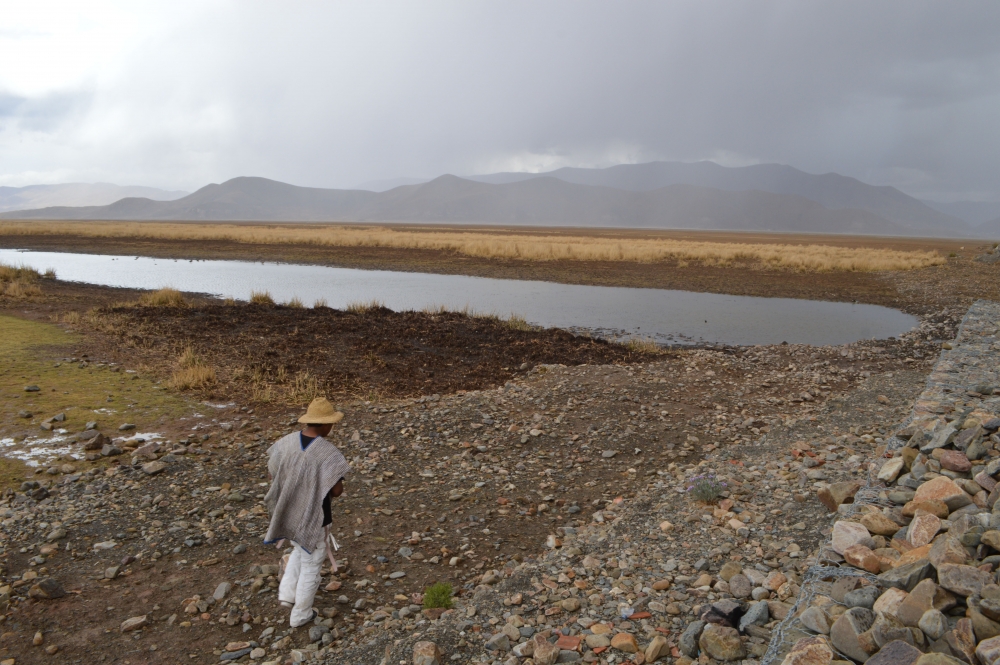Guatemala: Barrio 18 gang in deadly prison siege
Three guards were killed as riot police stormed a juvenile detention center outside Guatemala City, where members of the notorious Barrio 18 narco-gang had staged un uprising.
Three guards were killed as riot police stormed a juvenile detention center outside Guatemala City, where members of the notorious Barrio 18 narco-gang had staged un uprising.
A Colombian cartel operative who established Central America's remote and lawless Miskito Coast as a major cocaine transfer point was arrested by Nicaraguan authorities.

A local campesino looks out on what remains of the Desaguadero River. Lake Poopó was once Bolivia's second largest lake, after Titicaca—the two connected by the Desaguadero. Now climate change has melted the Andean glaciers that fed Poopó. Water from its tributaries… Read moreClimate change and Bolivia’s crisis drought
A joint security force bringing together the three nations of Central America's Northern Triangle officially began operations to fight narco-gangs and organized crime.
Followers of the indigenous party Yatama clashed with police and supporters of the ruling FSLN on Nicaragua's Caribbean coast in the aftermath of contested national elections.
Rights activists and indigenous protesters clashed with riot police in Tegucigalpa following the murder of two prominent campesino leaders—the latest in a wave of repressive terror.
A draft bill on constitutional justice reforms now pending in the Guatemalan congress would recognize indigenous peoples' legal jurisdiction over internal matters.
A court in El Salvador will reopen an investigation into the Mozote massacre of 1981, following petitioning by attorneys and international human rights groups.
An army deserter says US-backed death squads within the Honduran military are responsible for a wave of assassinations targeting indigenous and ecologist leaders.
Panama opened the long-awaited expanded canal, designed to accommodate new "mega-ships." But the drought-stricken country struggles to conserve water for the giant locks.
Francisca Ramírez Torres, leader of the movement against the planned Nicaraguan canal, was arrested without charge by National Police agents in a raid on her village.
The son of Honduras' ex-president Porfirio Lobo pleaded guilty to cocaine trafficking charges in a federal court in Manhattan, and faces a mandatory 10-year prison term.